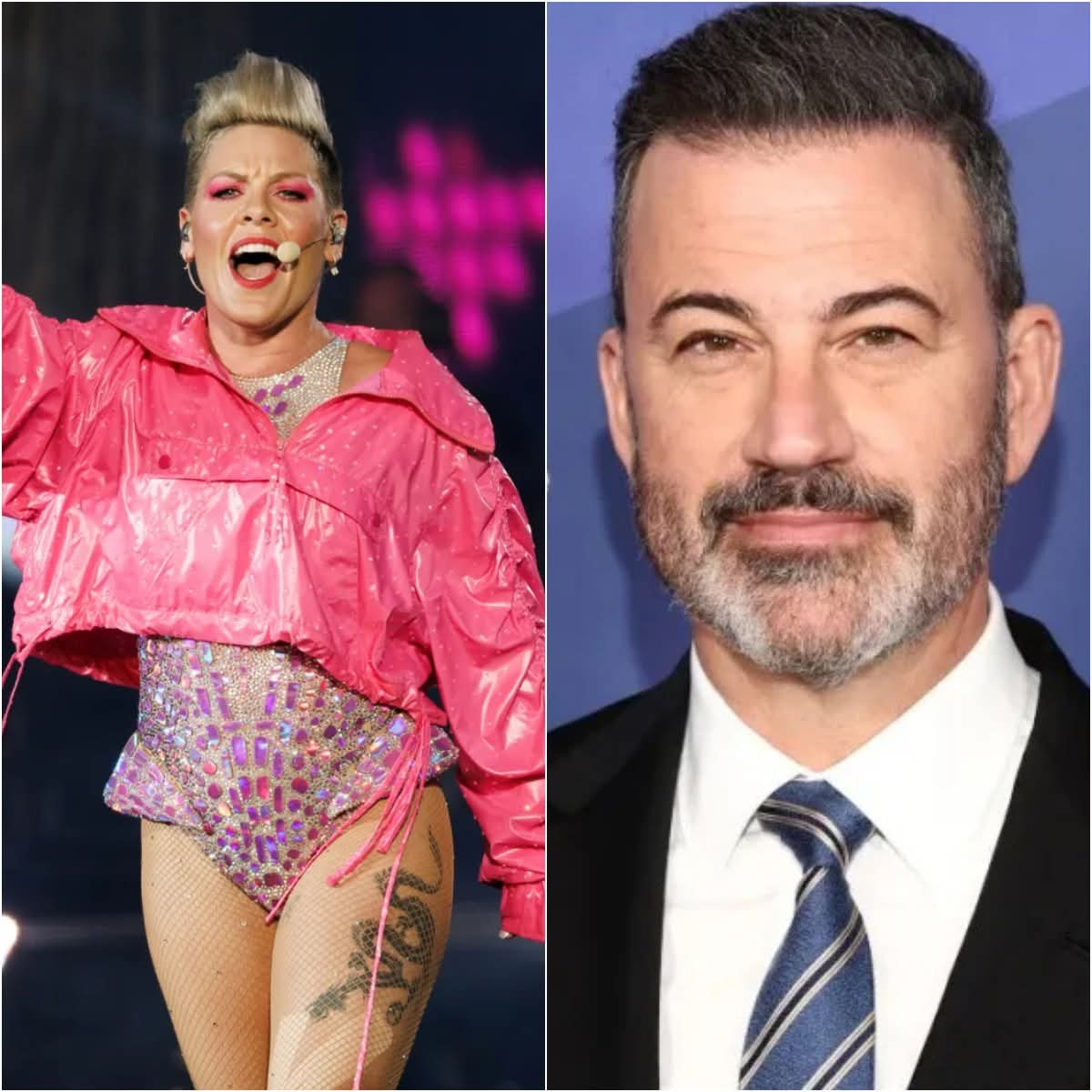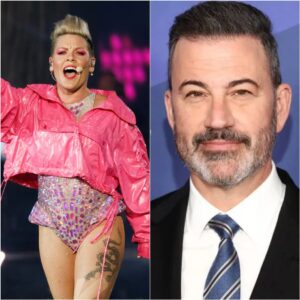CELEBRITY
They didn’t just suspend him. Leaked details allege ABC demanded Jimmy Kimmel issue an apology AND pay a ‘cash settlement’ to return to the air. While the media world debated, pop superstar Pink did what she always does: she started a fire. Her one-line takedown of the network’s demand went viral, turning a TV scandal into a national movement about who gets to speak in America. What she said is a rallying cry for anyone who believes a voice can’t be bought. The full, explosive story is in the comments.

Just when the controversy surrounding Jimmy Kimmel’s suspension seemed to have reached its peak intensity, a shocking new allegation has poured gasoline on the fire. According to sources inside the negotiations, ABC’s offer to bring their late-night star back to the airwaves came with an unprecedented condition: a public apology accompanied by a substantial “cash settlement” to be paid to the family of the late Charlie Kirk. The demand transformed the situation from a corporate dispute into a profound ethical crisis. It was no longer just about a suspension; it was about putting a price tag on a voice.
And that is when Pink, the Grammy-winning superstar whose entire career has been a masterclass in rebellion, entered the arena. Her response was swift, sharp, and it turned a media-industry battle into a full-blown cultural crusade against corporate censorship.
The story of the Jimmy Kimmel Charlie Kirk saga has been one of escalating stakes, drawing in voices from comedy, sports, and now, the zenith of pop music. But Pink’s intervention feels different. It feels decisive. In a single, fiery statement that immediately detonated online, she didn’t just defend a fellow artist; she drew a battle line over the very soul of public expression.

The Rebel with a Cause
Pink’s brand has never been about quiet compliance. From the raw vulnerability of “Just Like a Pill” to the social anthem “What About Us,” her music and public persona are built on a foundation of fierce authenticity and a willingness to speak truth to power. She has spent two decades cultivating a global army of fans who see her not just as an entertainer, but as a fighter.
So when reports of ABC’s pay-to-play ultimatum surfaced, her response was almost inevitable. Taking to her social media platforms, she unleashed the line that would define this new chapter of the controversy: “Freedom of speech cannot be bought with money; it is the voice of the people.”
The reaction was instantaneous and overwhelming. Within hours, her post had garnered over 80,000 reactions, launching a viral tidal wave. The phrase became a rallying cry, plastered across social media graphics and fan tributes. For her followers, this was the Pink they knew and loved—unfiltered, defiant, and standing on principle. This act of solidarity, where Pink defends Jimmy Kimmel, was seen not as a celebrity defending another celebrity, but as an artist defending the very right to be an artist.

Beyond the First Amendment: A Cultural Battle
Crucially, Pink’s argument, and the larger outrage, transcends the technical legal debate around free speech. Critics of the backlash are correct on one point: the First Amendment protects citizens from government censorship, not from the internal policies of a private corporation like ABC. But to dismiss the controversy on that technicality is to fundamentally misunderstand the nature of modern power.
In the 21st century, mega-corporations like Disney, ABC’s parent company, wield a form of influence over public discourse that is, in many ways, more immediate and pervasive than that of the government. They are the gatekeepers of the largest platforms. The ABC free speech controversy is not a legal case; it is a cultural one. The core question it poses is whether we are comfortable living in a society where a corporation can demand financial penance as a condition for public speech











